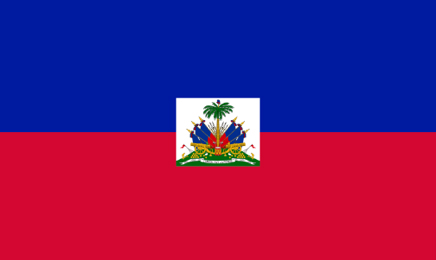Trader Joe’s Labor Union Bags a Victory in Trademark Dispute | Dorsey & Whitney LLP
Trader Joe’s is a hugely popular grocery chain that has expanded from its Southern California origins to operate close to 600 stores across the United States. Although Trader Joe’s has traditionally had a reputation as an ethical company, accusations of union-busting have tarnished the grocer’s image as a good employer. Moreover, the company’s latest tack in its labor disputes – suing its employees’ union for trademark infringement – isn’t going so well. Earlier this year, Judge Herman D. Vera of the U.S. District Court for the Central District of California tossed the case, finding there was no likelihood of confusion posed by the Trader Joe’s union’s products. In its decision, the Court made clear that it viewed Trader Joe’s lawsuit as a bad-faith effort to pressure the union, and warned that it was dangerously close to sanctionable conduct.
Trader Joe’s United (the “Union”) is a labor union that represents certain Trader Joe’s employees at multiple stores across the country. Trader Joe’s has resisted efforts on the part of its employees to unionize, and the National Labor Relations Board has filed multiple complaints against Trader Joe’s relating to union elections. In July 2023, the NLRB even filed a consolidated complaint against Trader Joe’s, asserting claims for various unfair labor practices. In what is unlikely a coincidence, six days after the NLRB complaint was filed, Trader Joe’s commenced a trademark infringement action against the Union.
As one would expect, Trader Joe’s owns multiple registered trademarks, including the iconic wine bottle-with-bread-and-cheese logo. Trader Joe’s uses its marks not only in connection with food and beverage products, but also in the sale of branded merchandise, such as its ubiquitous tote bags. The Union also sells certain products on its own website, including mugs, apparel, buttons, and tote bags bearing the Union name and designs relating to its mission of labor activism. In the court action, Trader Joe’s alleged that the Union’s merchandise infringes on Trader Joe’s marks – it was particularly upset about the Union’s sale of reusable tote bags. Trader Joe’s claimed that the Union was using the marks in a purely commercial fashion that resulted in a likelihood of consumer confusion.
After setting forth the Twombly standard for a motion to dismiss, the Court moved on to address the substance of the claims. It first dismissed Trader Joe’s’ claim for injunctive relief, holding that the Norris-LaGuardia Act, which prohibits federal courts from issuing injunctive orders in labor disputes, foreclosed that claim. In doing so, the Court hinted that it viewed the case as a transparent ploy to pressure the Union, noting that the history of the parties’ labor disputes, including the timing of this lawsuit, “combined with the weakness of [Trader Joe’s’] claims leads the Court to the conclusion that this case is an attempt to weaponize the legal system to gain advantage in an ongoing labor dispute between Trader Joe’s and the Union representing its workers.” Ouch.
The Court then turned to the trademark infringement claims. As there was no debate that Trader Joe’s had a valid, protectable trademark, the Court confined its analysis to the likelihood of confusion issue. The Ninth Circuit uses a test similar to the Second Circuit’s Polaroid test, based upon the AMF Inc. v. Sleekcraft Boats, 599 F.2d 341 (9th Cir. 1979) decision. Per Sleekcraft, courts consider eight factors to determine whether there is a likelihood of confusion: (1) strength of the mark; (2) proximity or relatedness of the goods; (3) similarity of the sight, sound and meaning of the marks; (4) evidence of actual confusion; (5) degree to which the marketing channels converge; (6) types of goods and degree of care consumers are likely to exercise when purchasing them; (7) intent of defendants in selecting the infringing mark; and (8) likelihood that the parties will expand their product lines.
Here, the Court found that the goods at issue were not sufficiently related. Tote bags were the only product type sold by both parties. Even more importantly, the Court held that the context in which consumers find the Union’s products (on its website, which is openly critical of Trader Joe’s’ labor practices) minimizes the likelihood that the public will mistakenly believe the goods at issue are related. This fact was also relevant to the marketing channels prong, which the Court found weighed against a possible likelihood of confusion. As the Court put it, “[c]onsumers only encounter the Union’s products in the context of its website, which is steeped in the language of labor activism.” The Court also found insufficient similarity between the products, which again favored the Union. Notably, Trader Joe’s claimed that it was not suing the Union over the use of the name “Trader Joe’s.” Absent the fact that both parties’ products used the name “Trader Joe’s,” however, there simply was not much similarity between the products.
The Court considered the other Sleekcraft factors to be “relatively unimportant or neutral” in this case. But because the factors discussed above weighed so strongly in the Union’s favor, the Court granted the Union’s motion to dismiss Trader Joe’s’ trademark infringement claims with prejudice. The Court also held that Trader Joe’s had failed to plead facts suggesting the possibility of trademark dilution, and dismissed that case of action too.
While the Court made sure to do the required Sleekcraft analysis, it knew this was no ordinary trademark dispute, and was not about to pretend otherwise. Indeed, it stated at the outset that it was going to “point out the obvious” – that this action “is undoubtedly related to an existing labor dispute, and it strains credulity to believe that the present lawsuit – which itself comes dangerously close to the line of Rule 11 – would have been filed absent the ongoing organizing efforts that Trader Joe’s employees have mounted (successfully) in multiple locations across the country.”
Trader Joe’s has now appealed the dismissal. Given the Court’s reference to Rule 11 (i.e., sanctions), the Union is almost certainly going to ask the Ninth Circuit to award the Union its fees. If the Ninth Circuit also thinks Trader Joe’s is weaponizing trademark law to gain leverage in a labor dispute, then indeed Trader Joe’s might be on the hook for the Union’s legal fees. Stay tuned for more on this case.






